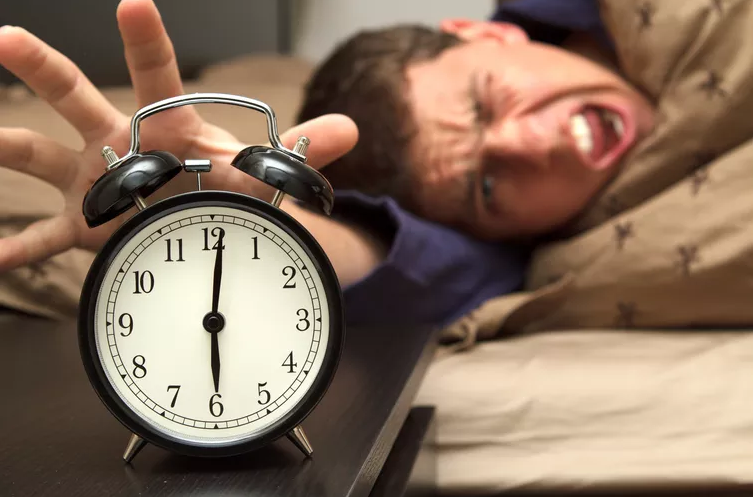
High school in the United States starts way too early. Given teenagers' sleep patterns, the ideal school start time could be as late as 11:30 a.m. — when many high school students have already finished half a school day and are eating lunch.
Researchers from Harvard and Oxford wrote about this new finding in a recent article in the journal Learning, Media and Technology. In the article, Paul Kelley argued that, given when kids and teenagers are biologically conditioned to wake up, 10-year-olds should start school at 8 a.m., 16-year-olds should start between 10 a.m. and 10:30 a.m., and 18-year-olds should start between 11 a.m. and 11:30 a.m.
There's been lots of research done on sleep and performance in school — but this article argues that school should start even later than most proposals for a later start time call for. Teens aren't lazy — adults need to adjust. This isn't laziness — sleep patterns are a biological necessity. Reviewing evidence from studies around the world, the researchers argue that starting school later would help students learn more, perform better on tests, and even make teenagers less grumpy. When the Minneapolis Public Schools moved their start time from 7:15 a.m. to 8:40 a.m., students liked the change and reported that "attendance, achievement, behavior, and mood improved."
Parents were positive, too: 92 percent said they liked the shift, and parents reported that their kids were easier to live with when they weren't getting up so early. At the US Air Force Academy, where students were randomly assigned to classes with earlier and later start times, students who started earlier performed worse all day long on those days.
The researchers argue that this is partly cultural, and that getting up early is still seen as a virtue. That's wrong, they write: "A common belief is that adolescents are tired because they choose to stay up too late, or are difficult to wake in the morning because they are lazy. Educators tend to think that adolescents learn best in the morning and if they simply went to sleep earlier, it would improve their concentration… The truth is that adults need to be educated."
本时文内容由奇速英语国际教育研究院原创编写,禁止复制和任何商业用途,版权所有,侵权必究!
1.The underlined word “grumpy” in the third paragraph means ______.
A becoming annoyed easily
B feeling happy quickly
C turning successful slowly
D getting tired fast
解析:选A。A。词意推测题。根据第三段第五句的...behavior, and mood improved可知孩子们的情绪得到了提高,因此他们就“不容易烦恼了”,所以该词的意思为becoming annoyed easily。
2.From Paul Kelley’s research, people can conclude _____.
A the elder the children are, the later they should start learning
B the earlier the children get up, the cleverer they will become
C the more time children spend learning, the better they will be
D the later children wake up, the more knowledge they can get
解析:选A。A。推理判断题。根据文章第二段最后一句的10-year-olds should start school at 8 a.m., 16-year-olds should start between 10 a.m. and 10:30 a.m., and 18-year-olds should start between 11 a.m. and 11:30 a.m.可以得知孩子越大开始学习的时间应该越晚。
3.What did the parents think of getting up late?
A They thought the students are losing a virtue.
B They thought the students benefit from that.
C They thought adults need to be educated.
D They thought the adults become lazier.
解析:选B。B。推理判断题。根据第四段第一句的Parents were positive, too: 92 percent said they liked the shift, and parents reported that their kids were easier to live with when they weren't getting up so early可知家长们看到效果后认为,学生们能从晚起床中受益。
4.What is the best title of the passage?
A Why experts say high school should start after 10 am
B When high school students should finish eating lunch
C How teenagers' sleep pattern should be changed greatly
D How Learning, Media, and Technology affects students
解析:选A。A。文章标题题。作者从文章的第一句High school in the United States starts way too early就亮出观点:美国学生开始上学的时间太早了;而整篇文章都是在讲学生应该更晚上课的原因。